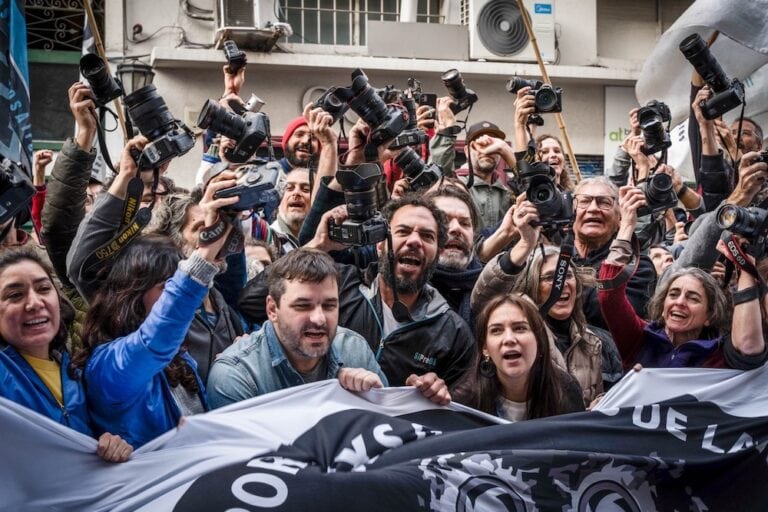(FOPEA /IFEX) – The following is a 10 August 2007 statement from FOPEA, an interim member of IFEX: Requirement for journalists to have professional degree sparks concern On 10 August 2007, FOPEA sent a letter to the federal prosecutor for Salta province, in northwestern Argentina, expressing concern about a recommendation by a federal judge in […]
(FOPEA /IFEX) – The following is a 10 August 2007 statement from FOPEA, an interim member of IFEX:
Requirement for journalists to have professional degree sparks concern
On 10 August 2007, FOPEA sent a letter to the federal prosecutor for Salta province, in northwestern Argentina, expressing concern about a recommendation by a federal judge in the Salta city of Orán that journalist Fabián Cardozo be investigated for possibly having committed a crime by working without possessing a professional journalism degree. This occurred after the reporter had covered a hearing presided over by the same judge on a human rights violation committed during the last dictatorship.
On 16 July, members of Squadron 20 of the National Gendarmes (Gendarmería Nacional) prevented five activists from the Encuentro por la Memoria human rights organization, who are plaintiffs in a hearing on the 1976 kidnapping and murder of Jorge René Santillán, from leaving the courthouse. Cardozo, who was taking photographs to accompany his article on the case, was also prevented from leaving. The hearing was being presided over by Judge Raúl Reynoso, federal judge for Orán.
According to a complaint filed with federal prosecutor José Luis Bruno’s office by Cardozo and Encuentro por la Memoria lawyer David Leiva, Cardozo’s problem began when he was about to take a photograph of the members of the human rights group. One of the gendarmes told Cardozo that he had to have permission to take any photographs. Later, when Cardozo tried to leave the courthouse to conduct a radio interview for the story, another gendarme warned him that he “had an order to not allow him to leave the building.” Although Cardozo asked for an explanation he received none. However, when the Squadron’s commander arrived, he allowed Cardozo and the others to leave.
Although Judge Reynoso stepped down on 23 July as presiding judge for the Santillán hearing, before doing so he issued a ruling on the 16 July incident, saying that he believed it appropriate to inform the prosecutor of actions by “Mr. Fabián Cardozo that probably violate Article 247 of the Penal Code, law 12908 (statute of the professional journalist) and/or the current legal regulations regarding the practice of journalism.” Judge Reynoso was alluding to Article 247 of the Penal Code, which provides for the penalties for anyone practicing a profession without the degree that confers on them the right to do so or another “appropriate authorization.”
Prosecutor Bruno initiated a preliminary investigation, then referred the matter to the federal prosecutor for Salta, Ricardo Toranzos. Toranzos will now have to decide if charges against Cardozo should be filed.
Cardozo told FOPEA that Judge Reynoso was fully aware of his status as a journalist, as Cardozo had interviewed him many times. He also said he has a diploma as a social communications technician.
International agreements stipulate that the possession of a degree should not be a mandatory requirement in order to practice journalism. Article 13 of the American Convention on Human Rights (the Pact of San Jose) prohibits restrictions on the free flow of information. The Declaration on Principles of Freedom of Expression of the Inter-American Human Rights Commission, of October 2001, states: “Every person has the right to communicate his/her views by any means and in any form. Compulsory membership or the requirements of a university degree for the practice of journalism constitute unlawful restrictions of freedom of expression. Journalistic activities must be guided by ethical conduct, which should in no case be imposed by the State.”
In the letter sent to Toranzos on 10 August, FOPEA referred to those agreements as well as the jurisprudence of the Inter-American Court of Human Rights, which also stipulates that mandatory requirements of university degrees or membership in a journalists’ college in order to practice journalism are unacceptable because they limit freedom of expression.


